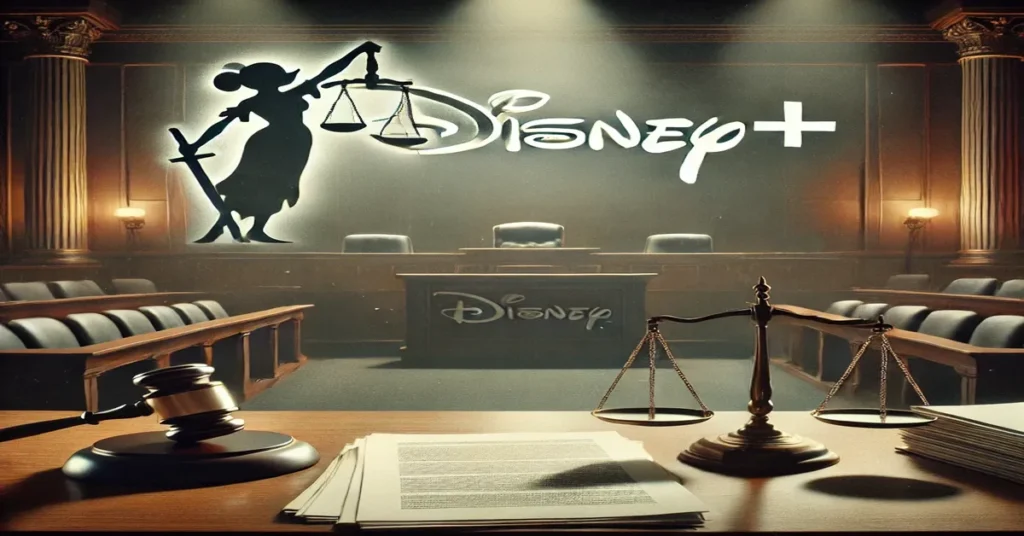The Disney+ wrongful death lawsuit has brought significant attention to the tragic events that unfolded at Walt Disney World’s Disney Springs in 2023. This legal case not only highlights corporate responsibilities and the application of arbitration clauses but also raises critical questions about consumer rights and ethical practices. This article will explore the background of the lawsuit, its legal implications, and the broader lessons it offers for businesses and consumers alike.
What Happened at Disney Springs?
In October 2023, Dr. Kanokporn “Amy” Tangsuan tragically passed away after suffering a fatal anaphylactic reaction at Raglan Road Irish Pub in Disney Springs, Orlando, Florida. Dr. Tangsuan had explicitly informed the restaurant staff about her severe allergies to dairy and nuts, requesting that her meal be prepared with utmost caution. Despite these precautions, cross-contamination led to her consuming allergens, triggering an anaphylactic reaction.
Emergency medical services were called, but unfortunately, Dr. Tangsuan could not be saved. Her untimely death left her husband, Jeffrey Piccolo, devastated and searching for answers. In February 2024, Piccolo filed a wrongful death lawsuit against The Walt Disney Company and Raglan Road Irish Pub, alleging negligence and a failure to follow proper food safety protocols.
What Is a Wrongful Death Lawsuit?
A wrongful death lawsuit is a legal action filed by the survivors of a deceased individual whose death was caused by the negligence or misconduct of another party. Unlike criminal cases, which aim to punish offenders, wrongful death lawsuits seek financial compensation for the bereaved. This can include compensation for medical expenses, funeral costs, lost income, and emotional suffering.
In the Disney+ wrongful death lawsuit, Piccolo’s claims are focused on holding the defendants accountable for failing to ensure the safety of a patron with known life-threatening allergies.
Disney’s Initial Legal Response
In response to the lawsuit, Disney’s legal team filed a motion to dismiss the case. Their argument was based on an arbitration clause contained in the terms and conditions of Disney+ subscriptions and park tickets. These agreements require disputes to be resolved through private arbitration rather than public litigation. Disney contended that Piccolo had agreed to these terms by signing up for Disney+ and purchasing park tickets, even though the wrongful death lawsuit was unrelated to these services.
The use of arbitration clauses in this context drew widespread criticism. Legal experts and the public alike questioned the ethics of invoking unrelated service agreements to shield Disney from accountability in a wrongful death case. Critics argued that such a strategy prioritized corporate interests over compassion and justice for the grieving family.
Public Backlash Against Disney
The public reaction to Disney’s legal defense was overwhelmingly negative. Social media platforms and news outlets erupted with criticism, accusing Disney of using legal loopholes to avoid accountability. Many viewed the company’s actions as emblematic of larger issues with arbitration clauses, which often limit consumers’ ability to seek redress through the courts.
Organizations advocating for consumer rights highlighted the case as an example of why arbitration clauses should be regulated or banned in certain contexts. The backlash put immense pressure on Disney to reconsider its legal approach.
Disney Reverses Course
In August 2024, Disney announced that it would withdraw its motion to dismiss the lawsuit. Josh D’Amaro, Chairman of Disney Parks, Experiences, and Products, released a statement expressing the company’s commitment to addressing the lawsuit with sensitivity and respect for the grieving family. Disney also waived its right to arbitration, allowing the case to proceed in court.
This reversal was seen as a victory for consumer advocates and a step toward greater accountability. However, it also underscored the importance of public pressure in influencing corporate decision-making.
Key Legal and Ethical Issues
The Role of Arbitration Clauses
Arbitration clauses are commonly included in consumer agreements, ranging from streaming services like Disney+ to airline tickets and credit card contracts. While arbitration is often presented as a faster and more cost-effective alternative to litigation, critics argue that it disproportionately benefits corporations by limiting consumers’ legal options.
The Disney+ wrongful death lawsuit brought these concerns to the forefront. By attempting to apply an arbitration clause from an unrelated service to a wrongful death case, Disney highlighted the potential overreach of such provisions.
Food Safety and Corporate Responsibility
The lawsuit also underscores the critical importance of food safety protocols, particularly for customers with severe allergies. Restaurants and food service providers must rigorously train staff, implement cross-contamination prevention measures, and maintain clear communication with customers about dietary restrictions.
In this case, the alleged failure to prevent cross-contamination had devastating consequences. The lawsuit serves as a stark reminder of the potential life-or-death stakes involved in food preparation.
Balancing Profit and Compassion
The backlash against Disney’s initial legal strategy illustrates the delicate balance that corporations must strike between protecting their financial interests and demonstrating empathy and ethical behavior. In high-profile cases involving personal tragedy, public perception can significantly impact a company’s reputation and bottom line.
Broader Implications for Consumers and Businesses
For Consumers
The Disney+ wrongful death lawsuit highlights the importance of understanding the terms and conditions associated with consumer agreements. Arbitration clauses can significantly impact individuals’ ability to seek justice, particularly in cases involving serious harm or loss. Consumers should advocate for greater transparency and fairness in these agreements.
For Businesses
Companies must recognize the potential consequences of relying on arbitration clauses to shield themselves from accountability. Ethical considerations and public relations risks should be carefully weighed, especially in cases involving loss of life or severe harm. Transparent communication and proactive measures to address customer concerns can help build trust and prevent legal disputes.
What Happens Next?
As of now, the wrongful death lawsuit against Disney and Raglan Road Irish Pub is moving forward in court. The outcome of the case could have far-reaching implications for both the restaurant industry and corporate legal practices. If Piccolo prevails, it may set a precedent for limiting the application of arbitration clauses in unrelated contexts and holding companies accountable for negligence.
Lessons Learned
The tragic events that led to the Disney+ wrongful death lawsuit offer several key lessons:
- The Need for Rigorous Food Safety Protocols: Restaurants must prioritize customer safety, particularly when dealing with severe allergies.
- Ethical Corporate Practices: Businesses should approach legal disputes with sensitivity and a commitment to fairness, particularly in cases involving personal tragedy.
- Consumer Awareness: Individuals must understand the legal implications of arbitration clauses and advocate for their rights.
- The Power of Public Pressure: Widespread criticism can influence corporate behavior and drive positive change.
Conclusion
The Disney+ wrongful death lawsuit is a complex and emotionally charged case that raises important questions about corporate responsibility, legal ethics, and consumer rights. As the lawsuit progresses, it will continue to serve as a focal point for discussions about arbitration clauses, food safety, and the balance between profit and compassion. Ultimately, the case underscores the need for businesses and consumers alike to prioritize accountability and ethical behavior.
FAQs
- What is the Disney+ wrongful death lawsuit?
- The lawsuit involves the tragic death of Dr. Kanokporn “Amy” Tangsuan, who died from an allergic reaction at Disney Springs. Her husband is suing The Walt Disney Company and Raglan Road Irish Pub for negligence.
- Why did Disney initially try to dismiss the lawsuit?
- Disney argued that arbitration clauses in the terms of service for Disney+ and park tickets applied to the case, requiring the dispute to be resolved outside of court.
- What is an arbitration clause?
- An arbitration clause is a contract provision requiring disputes to be resolved through private arbitration rather than litigation. These clauses are common in consumer agreements.
- Why did Disney withdraw its motion to dismiss?
- Following public backlash, Disney waived its right to arbitration and allowed the lawsuit to proceed in court, emphasizing the need for sensitivity in handling the case.
- What are the implications of this case for businesses?
- The case highlights the risks of relying on arbitration clauses and the importance of maintaining ethical practices, particularly in cases involving personal tragedy.
- What lessons can consumers learn from this case?
- Consumers should be aware of the terms and conditions they agree to and advocate for greater fairness and transparency in arbitration agreements.
This case continues to unfold, but it has already sparked critical conversations about justice, accountability, and corporate responsibility.







